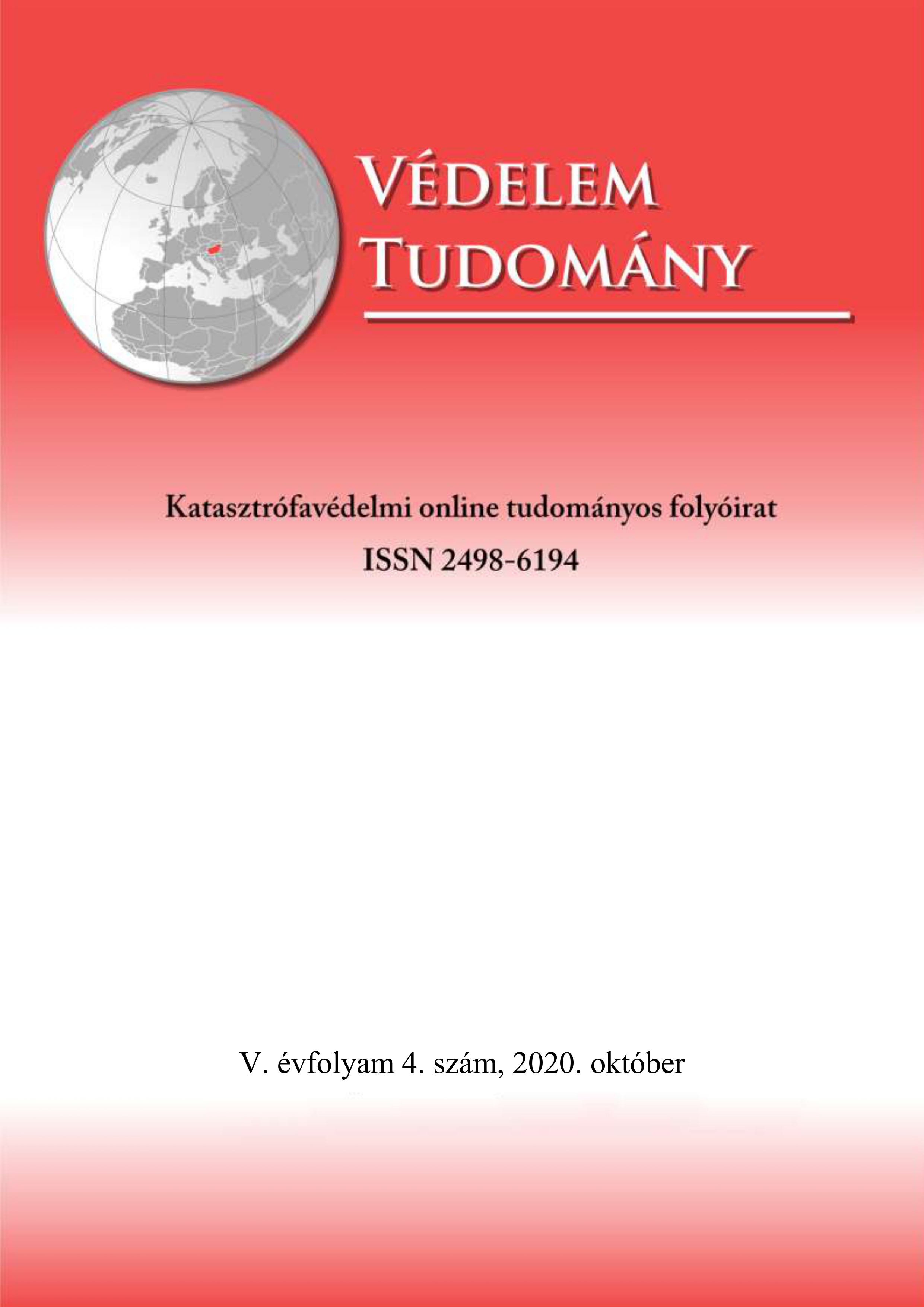Biztonság növelése a szervezeti tanulás útján, avagy a katasztrófavédelmi gyakorlatok újszerű értékelése a SOL elemzés módszerével II. rész
Absztrakt
A SOL elemzést eredetileg a nagy kockázattal jellemezhető technológiák működésében bekövetkezett nem várt események elemzésére hozták létre. A módszer elnevezése sugallja, hogy annak végső célja a szervezet biztonsági kultúrájának fejlesztése a szervezeti tanulás által. A SOL módszertan a diszkusszió stratégiáját – vagyis a balesettel vagy a gyakorlat kritikus eseményével kapcsolatos adatcserét – teljes egészében lefedi, sőt egy jól bevált szerkezettel is megtámogatja azt. A változtatást – mint stratégiát – az elemzés ugyan nem foglalja magába, ám annak első lépése lehet azáltal, hogy rámutat azokra a területekre (ún. „biztonsági résekre”), ahol valóban változtatásokra van szükség. Mint ilyen, a SOL-módszer is ahhoz nyújt segítséget, hogy egy felmerülő kérdés esetén a résztvevők addig elemezzék az ahhoz vezető folyamatot, amíg fel nem térképezik a hiányosságokat annak érdekében, hogy a jövőben az ilyen típusú hibák lehetőségét legkisebbre csökkentsék. A SOL elemzés célja a Katasztrófavédelem által szervezett nemzetközi árvízvédelmi terepgyakorlat során jelentkezőbiztonsági rések, hiányosságok feltérképezése volt, A SOL egy elméletileg jól megalapozott és kipróbált, hangsúlyozottan gyakorlati szemléletű, kifejezetten eseményelemző és nem „eseménykivizsgáló” módszer, ELSŐ rész a klasszikus eseményelemző módszereket, a SOL elemzés alapjait, a MÁSODIK rész a polgári védelmi mechanizmus keretében végrehajtott EU-s finanszírozású katasztrófavédelmi gyakorlat SOL elemzéssel történő értékelését mutatja be.
Hivatkozások
Jackovics P, Czaban C. Analysing a disaster management field exercise with SOL‐methodology. Journal of Flood Risk Management. 2018; e12503. https://doi.org/10.1111/jfr3.12503, Impakt Faktor = 3,24 (2019-ben)
Jackovics, Peter: Evaluation a City Emergency Management Exercise for Organizational Learning, Interdisciplinary Description of Complex Systems - scientific journal 17 : 1-B pp. 177-186. , 10 p. (2019)
Miklós Antalovits, Lajos Izsó, Sándor Suplicz: Factual Results of an Eight Year Application of the SOL Safety Event Analysis Methodology in a Hungarian Nuclear Power Plant, Acta Polytechnica Hungarica, Vol. 15, No. 7, 2018, p 201-223., Interneten elérhető: https://www.uni-obuda.hu/journal/Antalovits_Izso_Suplicz_86.pdf (2020. 03. 14.) IF for 2018: 1.286
Miklós Antalovits, Lajos Izsó, Sándor Suplicz: Impact Assessment of Eight Year Application of the SOL Safety Event Analysis Methodology in a Nuclear Power Plant, Acta Polytechnica Hungarica, Vol. 16, No. 1, 2019, p 163-187 Interneten elérhető: https://www.uniobuda.hu/journal/Izso_Antalovits_Suplicz_88.pdf (2020. 03. 14.)
Jackovics Péter: A különleges mentések és az arra felkészítő katasztrófavédelmi gyakorlatok vizsgálata alkalmazott matematikai és pszichológiai megközelítéssel (2019), doktori értekezés, Óbudai Egyetem, Biztonságtudományi Doktori Iskola, Interneten elérhető: http://www.lib.uni-obuda.hu/sites/lib.uni-obuda.hu/files/Jackovics_Peter_ertekezes.pdf (2020. 03. 14.)
Final Evaluation Report (2017) - Command Post Exercise and Full-scale Field Exercise of EUrban Water Aid project, Accessed Jun 4, 2018.
Grant Agreement (2015) – ECHO/SUB/2015/719073, Union Civil Protection Mechanism Exercises - 2015 Call for Proposal, 03612/2015, Accessed Jun 4, 2018. https://docs.wixstatic.com/ugd/2dda35_660eb5197a7b4b5a9a3f6ad1cfd50d85.pdf




